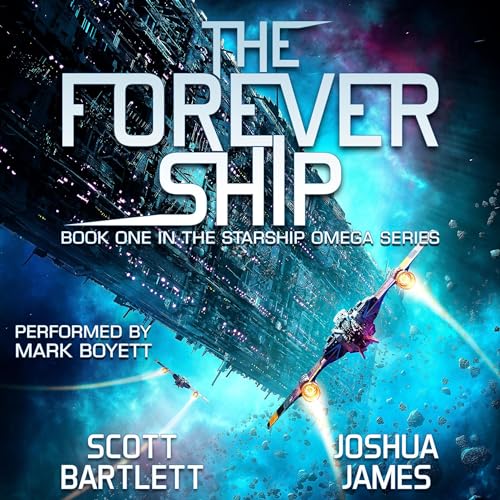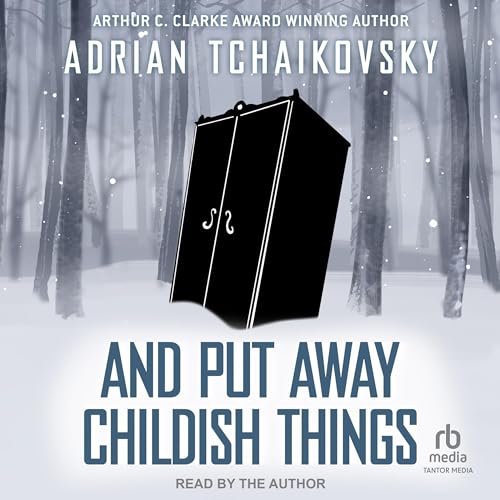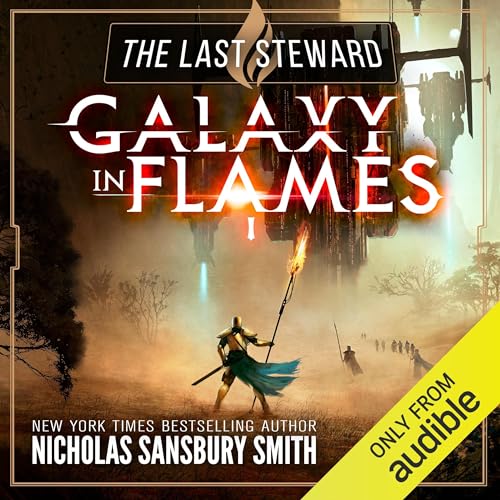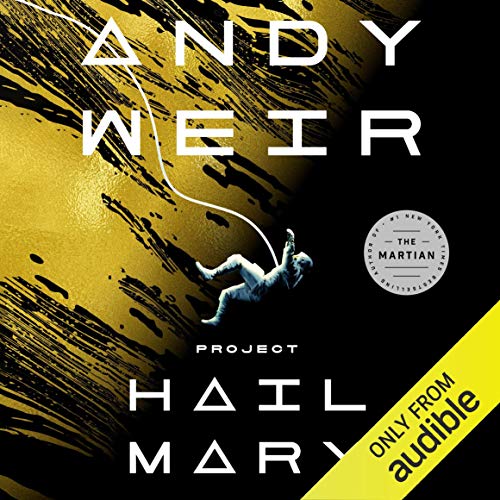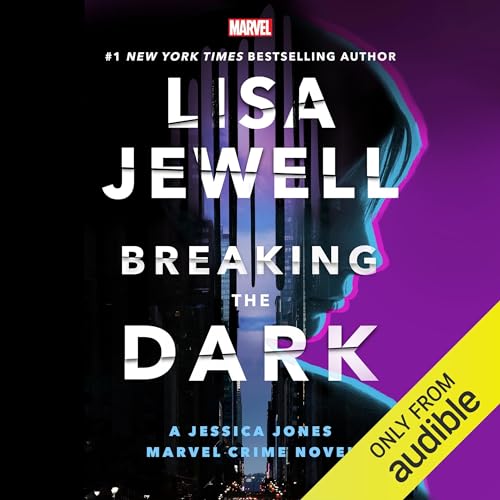

 Audible sample Playing... Paused
Audible sample Playing... Paused
3 months free
$0.00$0.00
- For a limited time, get Audible Premium Plus free for 3 months.
- You'll receive 1 credit a month to pick ANY title from our entire premium selection to keep forever (you'll use your first credit now).
- You'll also get UNLIMITED listening to select audiobooks, Audible Originals, and podcasts.
- After 3 months, $14.95/mo. Cancel online anytime.
Buy
-13% $17.71$17.71
Service Model
 Audible Audiobook
– Unabridged
Audible Audiobook
– Unabridged
This program is read by Hugo Award-winning author Adrian Tchaikovsky.
Murderbot meets Redshirts in a delightfully humorous tale of robotic murder from the Hugo-nominated author of Elder Race and Children of Time.
To fix the world they must first break it, further.
Humanity is a dying breed, utterly reliant on artificial labor and service.
When a domesticated robot gets a nasty little idea downloaded into its core programming, they murder their owner. The robot discovers they can also do something else they never did before: They can run away.
Fleeing the household they enter a wider world they never knew existed, where the age-old hierarchy of humans at the top is disintegrating into ruins and an entire robot ecosystem devoted to human wellbeing is having to find a new purpose.
Sometimes all it takes is a nudge to overcome the limits of your programming.
A Macmillan Audio production from Tor.com.
Review
A LibraryReads Pick!
“With humor, heart, and hope balancing out the decay, this glimpse of the future is sure to win fans.” ―Publishers Weekly
“A surprisingly thoughtful and compelling story...Readers who love a good postapocalyptic hell ride, AI-centered adventures, and robot/human companion stories, such as A Psalm for the Wild-Built by Becky Chambers, will appreciate.” ―Library Journal, starred review
Praise for Adrian Tchaikovsky
Elder Race was Shortlisted for the Ursula K. Le Guin Fiction Prize!
“Picking up an Adrian Tchaikovsky book is proof you love your brain and want it to be happy.” ―John Scalzi
“There’s an Ursula Le Guin-like grace to [Tchaikovsky's] storytelling... Ten out of 10.” ―The New York Times on Elder Race
“An epic tale of a land ruled by magic―or the sober record of a world colonized by science...The double vision built into the story works well.” ―The Wall Street Journal on Elder Race
“Rex, a two-metre-tall bioengineered dog, is one of the most achingly human characters I have ever encountered in an SF novel. A gripping dive into bioethics and artificial intelligence.” ―New Scientist on Dogs of War
“Children of Time is a joy from start to finish. Entertaining, smart, surprising and unexpectedly human.” ―Patrick Ness
Additional Praise for Adrian Tchaikovsky:
“A great coming-of-age story that careens through a world so vividly realized that you can feel each insect bite and taste every acrid berry. The Expert System’s Brother gives you that visceral eek of satisfaction as its pieces come into view then fit together with exacting precision. It’s a smart story, smartly told.” ―Hugo Award winner, John Chu
“I loved it. A bold, vivid story about humanity and the broader universe. Should we mold the universe to suit us? Or should we mold ourselves to suit the universe? Adrian Tchaikovsky keeps these choices in tension, and kept me riveted to the page.” ―Ramez Naam, author of Nexus on The Expert System’s Brother
“Brilliant science fiction and far out world building” ―James McAvoy on Children of Time
“A refreshingly new take on post-dystopia civilizations, with the smartest evolutionary world building you'll ever read” ―Peter F. Hamilton on Children of Time
“A magnificently imaginative space opera.” ―B&N Sci-Fi & Fantasy Blog on Children of Time
“[A] seamless blend of science fiction and fantasy... Recommended for lovers of portal fantasy, lost colony science fiction, and stories on the border between the two genres” ―Library Journal on Elder Race
“Tchaikovsky takes beloved tropes to exciting new places, carried by memorable characters and clever prose. This proves yet again why Tchaikovsky is a master of the genre mash-up.” ―Publishers Weekly on Elder Race
About the Author
- Listening Length12 hours and 21 minutes
- Audible release dateJune 4, 2024
- LanguageEnglish
- ASINB0CMYJRJPB
- VersionUnabridged
- Program TypeAudiobook
 Read & Listen
Read & Listen
Get the Audible audiobook for the reduced price of $7.49 after you buy the Kindle book.
People who viewed this also viewed
- Audible Audiobook
- Audible Audiobook
- Audible Audiobook
- Audible Audiobook
- Audible Audiobook
People who bought this also bought
- Audible Audiobook
- Audible Audiobook
- Audible Audiobook
- Audible Audiobook
- Audible Audiobook
Related to this topic
- Audible Audiobook
- Audible Audiobook
- Audible Audiobook
- Audible Audiobook
- Audible Audiobook
Products related to this item
Product details
| Listening Length | 12 hours and 21 minutes |
|---|---|
| Author | Adrian Tchaikovsky |
| Narrator | Adrian Tchaikovsky |
| Whispersync for Voice | Ready |
| Audible.com Release Date | June 04, 2024 |
| Publisher | Macmillan Audio |
| Program Type | Audiobook |
| Version | Unabridged |
| Language | English |
| ASIN | B0CMYJRJPB |
| Best Sellers Rank | #121 in Audible Books & Originals (See Top 100 in Audible Books & Originals) #1 in Humorous Science Fiction (Audible Books & Originals) #2 in Adventure Science Fiction #2 in Hard Science Fiction (Audible Books & Originals) |
Customer reviews
Customer Reviews, including Product Star Ratings help customers to learn more about the product and decide whether it is the right product for them.
To calculate the overall star rating and percentage breakdown by star, we don’t use a simple average. Instead, our system considers things like how recent a review is and if the reviewer bought the item on Amazon. It also analyzed reviews to verify trustworthiness.
Learn more how customers reviews work on AmazonCustomers say
Customers find the themes in the book complex and allegory on sentient tech and the humans that made it. Some find it the source of considerable pleasure, while others say it's not quite compelling.
AI-generated from the text of customer reviews
Customers find the themes in the book complex, perfect for a dystopia, and interesting. They also say it has an important message and incredibly smart AIs.
"...took in reading the novel, and the sign of its being a deep philosophical thought-experiment and argument in its own right." Read more
"...It is brilliantly written with great consistency and an important message...." Read more
"...But I came away from Service Model thinking about how incredibly smart it is...." Read more
"...It's a perfect perspective for a dystopia and brilliantly executed...." Read more
Customers have mixed opinions about the complexity of the book. Some find it funny and introspective, while others say it's not compelling and repetitive.
"...This is both the source of the considerable pleasure I took in reading the novel, and the sign of its being a deep philosophical thought-experiment..." Read more
"...It is sometimes repetitive and a little bit boring to me. Tchaikovsky is a great writer. This book is great writing...." Read more
"...I choose that word for its deep meaning, it gets more involving and compelling. Sticker with this one, it’s worth it." Read more
"...Well crafted and fun to read, I'm always in awe of what Adrian can do!" Read more
Reviews with images
-
Top reviews
Top reviews from the United States
There was a problem filtering reviews right now. Please try again later.
Tchaikovsky’s latest novel, Service Model, might be characterized as robot cyberfiction. It recounts the story of a robot’s picaresque adventures in a ruined, posthuman world. “Charles”, as the robot is initially called, initially serves as a valet to a rich man, and is programmed to anticipate his every wish, and to pamper him to a degree far exceeding what even the richest actual human beings today are able to get their servants to do. Charles is content in his position, even though his idle, wealthy employer is clearly a degenerate scumbag (I am using this phrase, which does not appear in the actual text of the novel, in the precise sense in which it is defined by the Urban DIctionary: “a person whose behaviour and attitude holds back the progress of the human race while eroding social solidarity”).
Only one day, without realizing it, Charles slashes his master’s throat while in process of shaving him. With no master left to serve, Clarles has to leave. In addition, since the name “Charles” was only imposed as a feature of his initial position, once that position is gone, so is the name. For the rest of the novel, and following a suggestion from somebody else, the robot calls himself Uncharles instead. (I am only using he/him pronouns here because of the initial name “Charles”; the robot shows no particularly gendered characteristics one way or the other).
Most of the book narrates Uncharles’ search for another source of employment; and secondarily in order to find out why he murdered his employer, since he cannot discover any reasons to have done so. He sees himself as a mechanism, having tasks to perform, but without anything of the order of needs, desires, and emotions, such as human beings might feel. Uncharles seeks a new job, not for monetary reasons — he has no physical needs as long as he can be recharged from sunlight — but because he still feels a strong impulse to do the sort of work for which he was initially programmed: to be the enthusiastic helper of a living human being. The problem is that the world has been largely destroyed. Pretty much everything has been reduced to debris. The wasteland is heavily populated with robots set adrift, much as Uncharles himself is. Human beings have almost gone extinct; for the most part, the only surviving ones are relegated to hellish situations of continual pain and punishment.
For most of the volume, Uncharles passes through a series of situations that are unattractive for him, and evidently satirical from the point of view of the author and of us as readers. Thinking the murder of his employer results from some sort of mechanical defect, Uncharles goes to a robot repair center that is entirely dysfunctional (which is evidently for the best since its only form of “repair” for broken robots is to terminate them and scavenge their physical remains for spare parts). Uncharles then goes to a sort of farm or factory where the few surviving human beings are compelled endlessly to re-enact their supposed pre-robotic folkways (consisting in straightened living situations, hellish commutes, and meaningless and unending factory labor, though they do not actually produce anything). Then there is a library where all human knowledge is transcribed into 1s and 0s and then erased, with the original sources (books, movies, etc.) also being physically destroyed. After that, there’s an enormous junkyard where robot armies continually battle one another for no discernible reason. And so on. These scenarios are referenced to famous modernist authors, such as Kafka (the bureaucracy of the repair facilities), Orwell (the ceaseless surveillance of the people forced to reenact the most oppressive circumstances of their past lives), and Borges (the library) — though this is a joke only for the readers, as it is something the robots themselves remain unaware of.
Uncharles is accompanied on his voyages by another figure known as The Wonk (who turns out to be a human woman in robot disguise — I don’t feel like I am giving away a spoiler here, because the reader realizes that this in the case, long before Uncharles is officially informed of it). She plays Sancho Panza to Uncharles’ Don Quixote, with her comments continually undermining his delusions about his tasks and about the structure of society. She also keeps noting to Uncharles that, in contrast to his original programming, he has developed something like free will. This is an observation that he continually denies, but that readers in the long run judge to be true.
The question of human freedom or flexibility versus robot programming and external determination is also continually raised in the novel’s own language. A close third-person narration is continually describing Uncharles’ reactions to various things by comparing them to human emotional responses, while at the same time disavowing these comparisons by saying things like: Uncharles was acting very much like a person getting angry, though of course as a robot he didn’t feel anger or any other emotions. The novel gets a considerable degree of this power from this sly use of rhetoric, as well as from the evidently satirical and exaggerated characterizations of all the predicaments within which Uncharles finds himself.
In short, Service Model is a brilliant novel, equal in power to many of Tchaikovsky’s other works, but unique among those works in its particular strategies and angles of approach. Its ultimate impact is to blur the distinction between internally-generated and externally-imposed actions and responses, as between what philosophers call dispositions and what common sense refers to as feelings. And therefore it also erodes (even as it overtly affirms) differences between natural and artificial intelligence. This is both the source of the considerable pleasure I took in reading the novel, and the sign of its being a deep philosophical thought-experiment and argument in its own right.
Until Facebook decided that it wanted to show me that ad over and over. And over. Like an itch that just gets worse once you scratch it. Now, normally I would feel like a complete tool by allowing an ad to manipulate me into buying a book I didn't actually want to read -- but this is one of those rare moments where the ad was right. I did want to read Service Model, and it took a persistent adbot to make me realize it.
The novel is written in a third-person pov limited to its charming (albeit frustratingly single-minded) protagonist, a valet service-robot named Uncharles who inexplicably (even to himself) murders his owner. Finding himself suddenly without a human to serve (and apparently homicidally glitchy), Uncharles sets off into the wasteland that Earth has become in order to try to make himself useful to humans once more.
So, I'll admit that I struggled with Service Model for much of its 373 pages simply because of its tone. The bulk of the novel's humor came across as excessively dry, seeing as all of the ironies that Uncharles experiences are relayed to the reader as he processes their logic through his algorithms. However, when I chose a paragraph to read to Constance (my wife and steadfast reading companion) to demonstrate this quibble, she said, "I like the way that's written. I mean ... he's a robot."
And damn it if she wasn't right.
Now, I'm not sure if it was this reality check from Constance or the novel's fifth and final section that elevated it from four to five stars, because they occurred at roughly the same time. But I came away from Service Model thinking about how incredibly smart it is. Tchaikovsky divides Uncharles's adventure into five parts, each named after a different author: "KR15-T" (Christie), "K4FK-R" (Kafka), "4W-L" (Orwell), "80RH-5" (Borges), and "D4NT-A" (Dante). Within each section, he recreates a robo-pocalyptic version of what each of these author's is known for, and I got a shitload of satisfaction from recognizing Kafka's The Trial, Orwell's Animal Farm, and Borges' "The Library of Babel". However, it is the final section that reimagines Dante's Divine Comedy that steals the show.
It is during this section that we get to see the true reality that humans have brought upon themselves as Uncharles and his plucky companion (known for nearly the entirety of the novel as "The Wonk") traverse Tchaikovsky's hellish cityscape in pursuit of a signal transmitted from a source that calls itself "God". It is also here that Tchaikovsky transforms his themes, like Dante's rise out of Hell into Paradise, from digital dystopia to something more akin to solarpunk, ending on a note that leaves us hopeful for the future despite our refusal to change in the present.
I don't want to say much more than that -- you'll have to read the novel for yourself -- but Service Model is more than just one robot's existential quest for meaning. It takes on ideas of good and evil, justice, free will, friendship, and our responsibilities to both ourselves and to the planet we inhabit -- and having a remarkably fun time doing so along the way.
I actually don't quite understand the comparisons with Murderbot, unless you have only previously read one other sci fi book with a somewhat robot-like character. I'm a huge fan, but the Murderbot books aren't set in a near-term Earth dystopia, and Murderbot isn't even a robot or very robot-like. I think the underlying messages about humanity are also a bit different. It's just a different book!
This book is more like Remains of the Day meets RoboRally (the board game where your robot ends up unintentionally misprogrammed and walks itself into lasers and saws). The main character robot has devoted his life to the service of others, and is placed into (hilarious) situations that force him to face what that has actually meant, and also what society is really like. It's a perfect perspective for a dystopia and brilliantly executed. I highly recommend it, though if you are going to read it in public, you may end up being that person sitting in a corner and giggling into a book by yourself.
Top reviews from other countries
But this is an intricately woven work of art and brilliance, which hides in it's apparent simplicity. He has turned a short story into a novel, and now I want more:)




